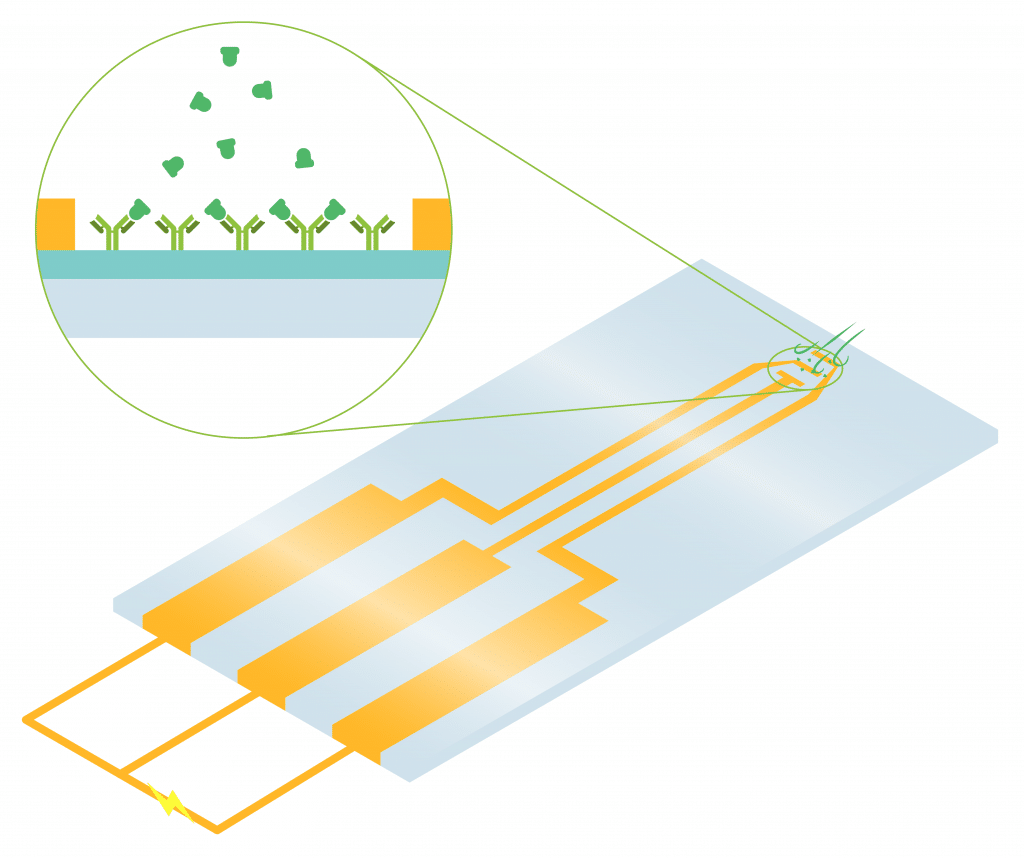Chemical & Biosensor Chips Based on FETs
A field effect transistor (FET) is a key electronic component that is used throughout numerous areas of the electronics industry. FETs are largely used within integrated circuits, consuming much lower levels of power than integrated circuits using bipolar transistor technology meaning they can be used on a much larger scale.

The concept of an FET centers around the notion that charge on an object close by can attract charges within a semiconductor channel. It usually operates using an electric field which is where the name is derived from. FETs are comprised of a semiconductor channel with electrodes at either end known as the drain and the source. A control electrode (known as an FET gate) is positioned close to the channel so that its electric charge is able to impact the channel, this control electrode manages the flow of carriers flowing from source to drain by controlling the size and shape of the conductive channel.
What are Biosensor Chips?
Biosensors are analytical devices which can be used for detecting chemical substances by combining a biological component with a physicochemical detector. Biosensor chips are made up of a number of distinct biosensors which can be monitored separately and can be employed in the analysis of a number of analytes.
Transducers translate information such as the effects of interactions and convert them into a measurable effect such as an electrical signal. Biosensor chips can be classified according to their transducer or bioreceptor type.
Understanding Biosensor Chips Based on FET
A biosensor chip based on FET is an FET that is gated by alterations in the surface potential brought on by the binding of molecules. When charged molecules such as biomolecules bind to the FET gate they can alter the charge dispersal of the underlying semiconductor material. This causes a change in conductance of the FET channel.
Biosensor chips based on FET are frequently used by researchers in early biomarker detection and drug screening. As they have non-metalized gate dielectrics, which are exposed to an electrolyte, covering the semiconductor material and actively transducing the biological alterations which are happening on the surface.
Biosensor chips based on FET are extremely efficient in detecting different biomolecular analytes in a real-time, extremely accurate, specific and label-free manner. This has been verified by numerous research studies and substantial progress has been made in the creation of FET devices specifically for biomedical diagnosis and cell-based assays in recent years.
Biosensor chips based on FET have exceptional electronic properties, are extremely, compact and very scalable. This makes them a brilliant solution for creating fast, label-free and mass detection of biomolecules. When incorporated with nanotechnology, the performance of biosensor chips based on FET is significantly increased, especially employment of nanomaterials such as graphene, metal nanoparticles, single and multi-walled carbon nanotubes, nanorods, and nanowires.
In addition to these benefits, commercial availability in biosensor chips based on FET and high-quality production on a large-scale, mean they are one of the most favored sensing and screening platforms. If you would like to learn more about biosensor chips, contact us today.